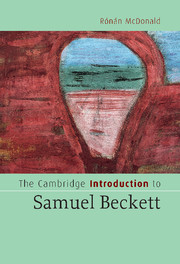Chapter 5 - Beckett criticism
Published online by Cambridge University Press: 05 June 2012
Summary
The shape of Beckett's career tends towards attenuation, his works getting ever sparer and more pointed as he got older. The less there is to say, it seems, the better it is said. By contrast, the criticism and commentary his work has produced have ballooned into hundreds of monographs and thousands of articles, far too many for a brief survey such as this. There are two specialist journals wholly devoted to Beckett scholarship, Journal of Beckett Studies and Samuel Beckett Today / Aujourd'hui, and a steady stream of conferences and symposia. One could point at a number of reasons for this academic interest. Initially his work was perceived as profoundly concerned with fundamental questions about the nature of human existence. Though this approach (which we might describe as ‘humanist’, assuming as it does that the experience of human existence is a constant across different cultures and historical periods) has diminished in the anti-essentialist bias of much modern literary theory, the aura around Beckett's work of the elemental, the bravely confrontational and the enduringly profound has certainly not dissipated. Secondly, the notorious difficulty of Beckett's work, be it the erudition of the early fiction or the alienating and purgatorial settings of the later prose and drama, is also a lure for critics and scholars, as there is clearly a need for their presence. With all the uncertainty and allusiveness, scholars have much to explain and annotate.
- Type
- Chapter
- Information
- The Cambridge Introduction to Samuel Beckett , pp. 116 - 126Publisher: Cambridge University PressPrint publication year: 2007



